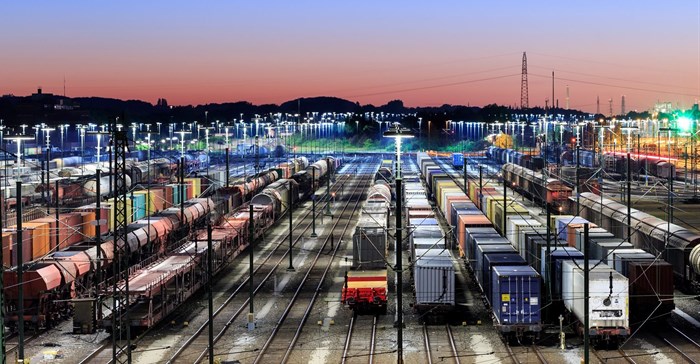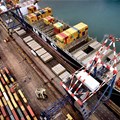The eighth annual African Ports and Rail Evolution Forum is currently underway at the Durban International Convention Centre in Durban, South Africa until Wednesday, 16 October 2019, exploring issues affecting the transport sector and the impact of the Fourth Industrial Revolution (4IR).
Speakers from various industry spheres and countries will be weighing in on mapping the journey of Africa 4.0 - among the speakers will be Andrew Cothill, manager of engineering technologies at the Institute for Maritime Technology from South Africa; Daniel Leask, account manager at Navis from the USA; and Tony Haugen, director of systems at Kongsberg Seatex from Norway. There Panel discussion are set to answer the question: Does Africa have a clear digital vision?.
The Fourth Industrial Revolution, characterised by disruptive technologies such as robotics, artificial intelligence (AI), big data, machine learning, the Internet of Things (IoT) and more, represents a fundamental shift in the way we live, work and relate to one another. Like earlier industrial revolutions, those who are fastest to take advantage of these new technologies will reap the most benefit.
Governments on the African continent are well aware of the opportunities presented by 4IR, however, there are concerns about Africa’s infrastructure constraints, particularly its shortfalls in transport infrastructure. To address this, African Union member states adopted the Programme for Infrastructure Development in Africa (PIDA), which aims to construct some 234 transport projects, including a high-speed rail network, by 2030.
The rail revolution
Some of the benefits of 4IR envisaged for Africa’s rail industry by the New Partnership for Africa's Development (NEPAD), include the development of collision avoidance systems and cockpit innovation to improve safety; state-of-the-art maintenance to proactively detect defects in rolling stock; new technologies to improve the efficiencies of existing infrastructure and rolling stock; as well as advances in signalling and telecommunications which could result in automated and faster train authorisation, rolling stock tracking and control.
Already, centralised traffic management and automation systems are being used in South Africa, with the Gauteng Nerve Centre (GNC) being a case in point. The 3,400m² state-of-the art control centre for centralised rail traffic management accommodates 35 train control operators in one place, and constantly monitors Gauteng’s rail traffic, where over 600 trains carry more than 500,000 commuters on a daily basis.
Looking to how other countries are adopting 4IR technologies, the Korea Railroad Research Institute is working on autonomous train behaviour control technology; the core technologies underpinning smart electrical railways and railway safety technology, amongst others.
Ports prepare for 4IR
The technology of the Fourth Industrial Revolution is changing the way containers are being loaded and discharged at ports, with automation and robotics resulting in remote operation being well on its way to becoming a standard and ergonomic means of operating. Additionally, equipment is being designed using 4IR technologies like big data, intelligent algorithms and AI to predict possible breakdowns and downtime, which in turn prevent issues from worsening before they even begin. The use of these technologies is being amplified in Smart Ports, a rapidly emerging global trend.
The Port of Rotterdam, for instance, has recently teamed up with tech giant IBM to combine cloud computing, AI, IoT sensors, and smart weather data to create a safe and efficient traffic management system.
Locally, the Port of Durban – situated within the country’s top city to visit, according to Forbes - is ahead of the curve in embracing the new industrial revolution. Over the past few years, it has implemented LTE networks and telematic solutions such as drone tracking and sensor technology to improve overall operations. These technologies are integrated with systems that allow for real time monitoring and intelligent reporting of the port’s operations.
Ultimately, the Fourth Industrial Revolution could potentially help to accelerate economic growth in Africa and enable cross-border collaboration and investment.
The African Ports and Rail Evolution Forum is co-located with KZN Export Week, an annual programme of Trade & Investment KwaZulu-Natal (TIKZN) developed to recognise, promote and assist in growing KwaZulu-Natal’s export businesses and industries.

































